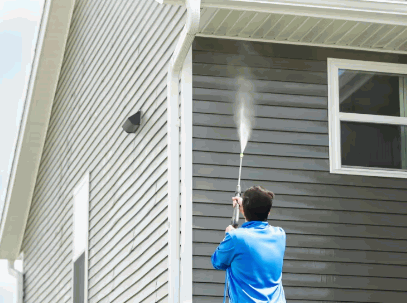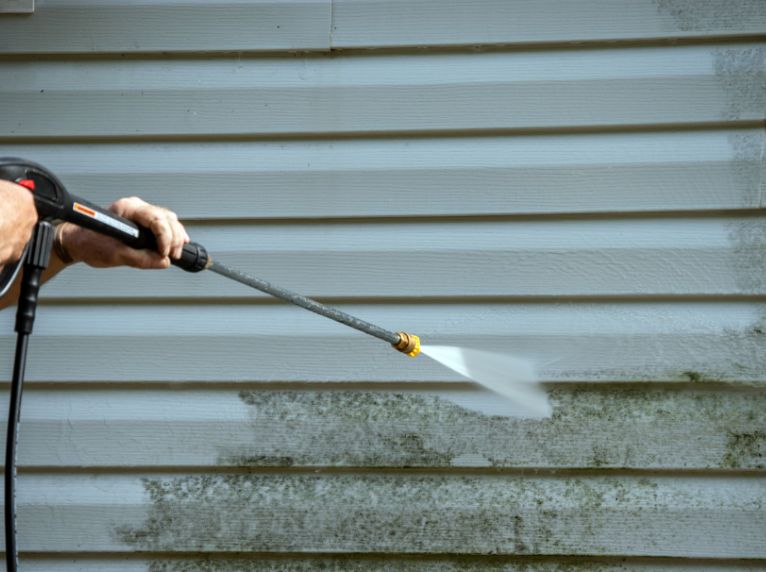Contents
External cladding plays a crucial role in protecting the exterior of a building from the elements, but it also requires regular cleaning to maintain its appearance and functionality.
We discuss the importance of cleaning external cladding, the different types of cladding materials, the tools and materials needed for cleaning, and step-by-step guides on how to clean vinyl, wood, brick, and metal cladding.
Discover tips for effectively maintaining clean external cladding to keep your cladding looking its best!
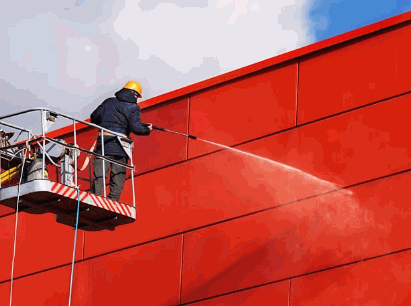
What Is External Cladding?
External cladding serves as an outer protective layer attached to buildings to safeguard them against external elements and enhance their appearance and thermal insulation.
- The choice of cladding materials such as metal, wood, vinyl, or fibre cement greatly influences the aesthetic appeal and functionality of the building.
- For instance, metal cladding offers a modern and sleek look, while wood cladding provides a warm and natural appearance.
External cladding plays a crucial role in shielding structures from harsh weather conditions, preventing moisture infiltration, and reducing heat loss or gain, thus improving energy efficiency.
The durability and maintenance requirements of different cladding options impact the long-term performance and cost-effectiveness of the building envelope.
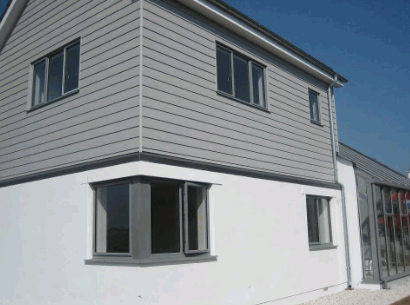
Why Is It Important To Clean External Cladding?
Regular cleaning of external cladding is essential to preserve its appearance, protect against damage, and ensure the longevity of buildings, especially in regions with variable weather conditions and pollution.
Professional cleaning services play a crucial role in maintaining the integrity of external cladding surfaces. With the advancement of innovative cleaning technologies, such as low-pressure washing systems and eco-friendly cleaning agents, it is now possible to effectively combat environmental factors like pollution and weather effects. These advanced methods not only ensure a thorough cleaning process but also minimise the risk of damage to the cladding materials. Scheduled maintenance provided by professional cleaners can significantly extend the lifespan of cladding, preserving its visual appeal and structural integrity.
Maintain Aesthetics
Regular cleaning of external cladding helps maintain its visual appeal and prevents the accumulation of dirt, grime, and organic matter, which can detract from the overall aesthetics of a building.
Thorough cleaning using professional-grade products and techniques is essential for restoring the original beauty of cladding materials. By opting for specialised cleaners designed for specific surfaces, you can effectively remove stubborn stains and mould, enhancing the exterior’s elegance.
When undertaking this task, remember to prioritise safety. Wear appropriate protective gear, such as gloves and goggles, to shield yourself from potentially harmful chemicals. Using equipment like pressure washers can help achieve a deep clean, but it’s crucial to follow manufacturer instructions to avoid damaging the cladding.
Take a look: Can You Pressure Wash Solar Panels
Prevent Damage
Cleaning external cladding regularly is crucial in preventing potential damage caused by dirt buildup, moisture retention, or exposure to harsh elements, thus extending the lifespan of the cladding materials.
Improper cleaning can lead to various types of damage, including staining, which can make the cladding look unsightly and detract from the building’s overall aesthetic appeal. Without regular maintenance, corrosion may develop, especially in metal cladding, compromising its structural integrity and longevity. Inadequate cleaning routines can also result in the degradation of the cladding materials over time, reducing their efficiency in protecting the building from external factors such as weather conditions and pollutants. By adhering to proper maintenance practices, not only can the warranty of the cladding be preserved, but the overall structural integrity of the building can also be safeguarded in the long run.
Improve Energy Efficiency
Clean external cladding contributes to improved energy efficiency by maintaining proper insulation properties, reducing the strain on heating and cooling systems, and potentially saving money on utility bills in the long run.
Regularly scheduled cleaning of cladding not only preserves its aesthetic appeal but also plays a crucial role in ensuring its thermal performance remains optimal. By keeping the cladding free from dirt, grime, and debris, the insulation properties of the building envelope are protected, thereby reducing heat loss in the winter and heat gain in the summer. This, in turn, lessens the workload on HVAC systems, leading to lower energy consumption and operational costs over time.
What Are The Different Types Of External Cladding?
External cladding comes in various materials such as vinyl, wood, brick, and metal, each requiring specific cleaning methods and maintenance to preserve their integrity and appearance.
For instance, vinyl cladding is relatively low maintenance, requiring periodic cleaning with mild soapy water and a brush. On the other hand, wood cladding demands more delicate care to prevent rot and mould growth, necessitating specialised cleaners and sealants. Brick cladding may benefit from gentle pressure washing to remove accumulated dirt and grime, while metal cladding often requires professional cleaning services to avoid corrosion and damage.
Choosing the right cleaning equipment, such as soft brushes or special metal-safe detergents, is crucial to prevent surface scratches and maintain the material’s longevity. Employing professional services tailored to the specific needs of each cladding type ensures thorough cleaning without compromising the material’s structure or finish.
Vinyl Cladding
Vinyl cladding requires gentle cleaning using a mild detergent solution and a soft-bristled brush or a gentle wash system, followed by applying a protective sealant to maintain its longevity and appearance.
To effectively clean vinyl cladding, start by mixing a small amount of mild detergent with warm water in a bucket. Take a soft-bristled brush or a gentle wash system and dip it into the solution. Gently scrub the surface of the cladding to remove any dirt, grime, or mould buildup. Rinse thoroughly with clean water to ensure all detergent residue is removed. After cleaning, dry the cladding with a soft cloth to prevent water spots.
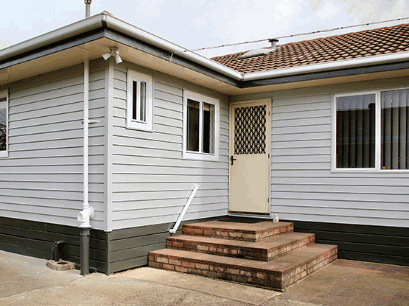
Wood Cladding
Cleaning wood cladding involves using a mixture of hot, soapy water and a soft sponge to remove dirt and stains gently, ensuring regular maintenance to preserve the natural beauty and durability of the material.
Regular cleaning of wood cladding is essential to prevent the accumulation of grime and mould, which can lead to decay if left unchecked. It is recommended to avoid harsh chemicals or abrasive tools that can scratch or damage the wood surface.
Inspecting the cladding periodically for any signs of wear or damage is also crucial in maintaining its structural integrity. By addressing minor issues promptly, you can prevent more extensive and costly repairs down the line.
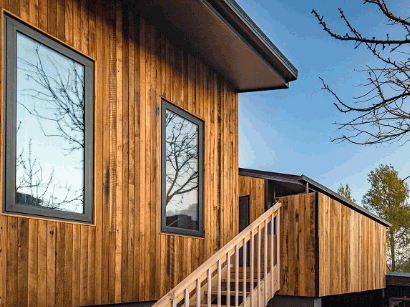
Brick Cladding
Brick cladding can be cleaned using a gentle wash system with a diluted washing-up liquid solution and a soft-bristled brush while avoiding high-pressure washing to prevent damage to the mortar and bricks.
When cleaning brick cladding, it’s important to choose a cleaning solution that is mild yet effective. Mixing washing-up liquid with water is a safe option that won’t harm the bricks. The soft-bristled brush should be used in a circular motion to dislodge dirt gently without scratching the surface.
Safety measures should always be observed. Wear protective gloves and eyewear to shield yourself from any splashes of cleaning solution. Avoid using abrasive tools or strong chemicals that can erode the brick’s surface over time.
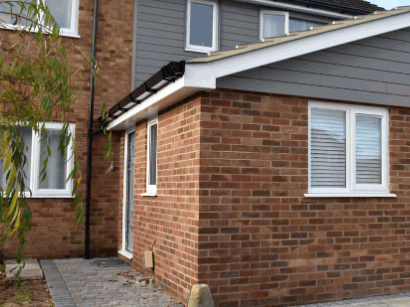
Metal Cladding
Metal cladding maintenance involves periodic cleaning with a suitable cleaning solution like acetic acid or hydrogen peroxide, followed by the application of a protective sealant to prevent corrosion and maintain the metallic finish.
In terms of the specialised care required for cleaning metal cladding, using the right cleaning agents is crucial to ensure the effective removal of dirt and grime without damaging the surface. Acetic acid is ideal for dissolving mineral deposits and rust stains, while hydrogen peroxide is excellent for removing organic stains and oxidation.
Professional cleaning services offer expert knowledge and access to industrial-grade cleaning agents that are specifically formulated for metal surfaces. The application of a protective coating after cleaning helps to shield the metal from environmental factors such as UV rays, moisture, and pollutants, extending the lifespan of the cladding.

What Tools And Materials Are Needed For Cleaning External Cladding?
Cleaning external cladding efficiently requires essential tools such as a pressure washer, soft-bristled brush, mild detergent, and a stable ladder for safe access to higher areas, with the option of professional cleaning services for optimal results.
It is crucial to have safety gear like gloves, eye protection, and non-slip footwear to prevent accidents and injuries during the cleaning process. Regular maintenance of the equipment is also vital to ensure longevity and efficient performance. For more intricate or high-rise cladding structures, employing professional cleaning companies not only guarantees a thorough and meticulous cleaning process but also saves time and effort on your end.
Soft-Bristled Brush
A soft-bristled brush is an essential tool for delicate cladding surfaces, allowing gentle cleaning and removal of dirt without causing scratches or damage to the material.
When selecting a brush for sensitive cladding, opt for bristles made of natural materials like horsehair or soft synthetic fibres, avoiding stiff or abrasive brushes that can mar the surface.
Regular maintenance of the brush is key to ensuring effective cleaning – rinse it after each use, remove any debris, and allow it to air dry completely to prevent mould growth.
Proper technique is also crucial; use gentle, circular motions and avoid applying excessive pressure to safeguard the integrity of the cladding.
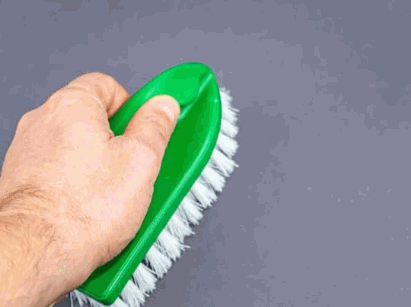
Mild Detergent
A mild detergent is effective in removing dirt and grime from external cladding surfaces without causing damage or leaving residues, ensuring a thorough yet gentle cleaning process.
When selecting a mild detergent for cladding cleaning, it is essential to consider its composition. Opt for eco-friendly detergents that are biodegradable and non-toxic to prevent harm to the environment and building materials. These formulations are gentle on the cladding yet powerful enough to break down stubborn stains.
The application method plays a crucial role in achieving optimal results. Dilute the detergent as per the manufacturer’s instructions in water and apply it using a soft brush or sponge to prevent scratches or damage to the surface.
Regular cleaning with mild detergents not only enhances the visual appeal of the cladding but also extends its longevity by preventing the accumulation of corrosive substances that can deteriorate the material over time.
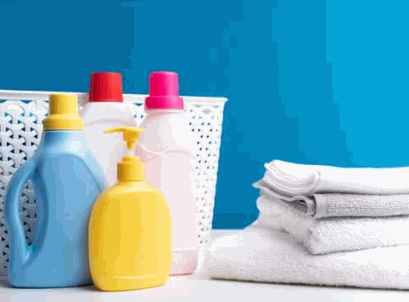
Ladder
A stable ladder is essential for accessing elevated areas of external cladding, ensuring safe and secure cleaning operations, with the option of using specialised access equipment like the Reach and Wash system for added convenience.
When using a ladder for cladding cleaning, always ensure it is placed on a flat and stable surface, with all four legs firmly planted on the ground. Perform regular checks for signs of wear and tear, such as loose screws or damaged rungs, to maintain its structural integrity. To maximise safety, position the ladder at the correct angle, approximately one-fourth of the ladder’s working length away from the surface it is leaning against.
For efficient cladding cleaning on high-rise buildings, professionals often rely on advanced access systems like the Reach and Wash system. This innovative solution utilises purified water and telescopic poles to reach difficult spots without the need for ladders or scaffolding, ensuring thorough cleaning while maintaining safety standards.
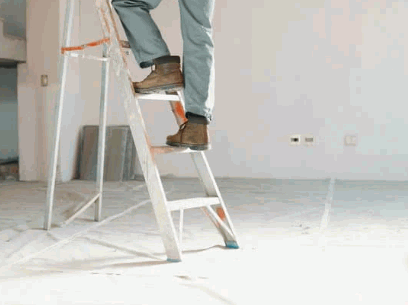
How To Clean Vinyl Cladding?
Cleaning vinyl cladding involves using a mild cleaning solution, a sponge or soft brush for gentle scrubbing, and applying a protective sealant to enhance durability and appearance.
- To start the cleaning process, mix water with a gentle, non-abrasive cleaning agent or washing-up liquid. Remember, harsh chemicals can damage the vinyl, so always opt for milder solutions.
- Dip the sponge or soft brush into the cleaning solution and scrub the vinyl cladding in a gentle circular motion to remove dirt and grime effectively. Ensure not to apply excessive pressure to prevent any scratches.
- Once cleaned, rinse the cladding thoroughly with clean water using a garden hose or a bucket of water.
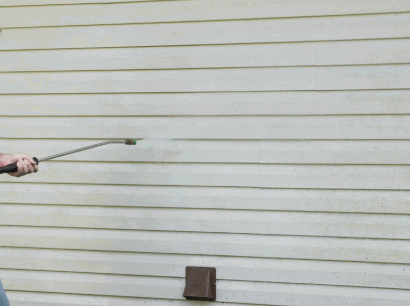
How To Clean Wood Cladding?
Cleaning wood cladding requires a gentle approach using a cleaning solution of hot, soapy water, a soft brush for scrubbing, and regular maintenance to preserve its natural beauty and structural integrity.
When cleaning wood cladding, it’s crucial to avoid harsh chemicals that can strip off the protective finish and damage the wood fibers. Opt for mild solutions like vinegar and water or a mild detergent mixed in water for a safe and effective cleaning process. Wood cladding should be gently scrubbed in the direction of the grain to prevent any scratching or splintering. Regular inspections to identify any mold, mildew, or insect infestations are essential for maintaining the longevity of the material.
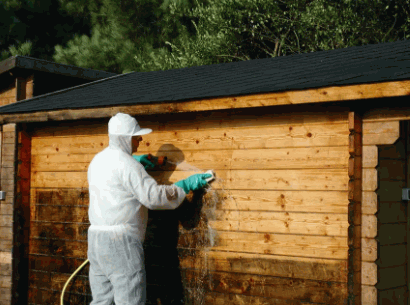
How To Clean Brick Cladding?
Cleaning brick cladding involves using a gentle cleaning solution with a pressure washer or soft brush, avoiding high-pressure settings to prevent damage to the bricks and mortar, with the option of using diluted dish soap for stubborn stains.
When cleaning brick surfaces, it is important to prioritize the longevity and aesthetics of the structure. To maintain the structural integrity of the bricks, ensure that the cleaning solution you use is compatible with the material. Consider a mixture of water and vinegar for a natural and effective cleaning solution. Moreover, when tackling tough grime or mildew, a mix of bleach and water can be effective, but remember to protect nearby vegetation as bleach can be harmful. Safety is paramount when using pressure washers; wear protective eyewear and clothing, and always test the pressure on a small inconspicuous area before proceeding with the full cleaning.
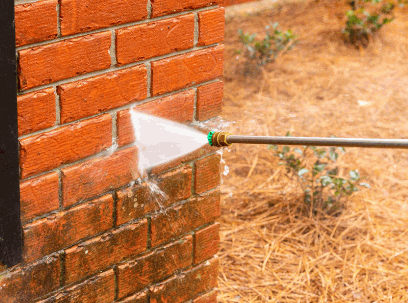
How To Clean Metal Cladding?
Cleaning metal cladding involves using specialised cleaning solutions like acetic acid or hydrogen peroxide to remove contaminants, followed by applying a protective sealant to prevent corrosion and maintain the metallic finish.
When considering professional cleaning services for metal cladding, it is crucial to opt for experts experienced in handling specific metal types to avoid damage.
Regular maintenance routines, including gentle washing with mild soapy water and soft cloths, can help extend the longevity of the metal cladding.
Periodic inspections for any signs of damage or wear can help identify issues early on, ensuring timely repairs and preserving the structural integrity of the cladding.
What Are Some Tips For Maintaining Clean External Cladding?
To maintain clean external cladding, establish a regular cleaning schedule, use appropriate cleaning products, inspect for damage periodically, and address any issues promptly to preserve the appearance and integrity of the cladding.
Regularly cleaning your cladding not only enhances its aesthetic appeal but also prolongs its lifespan. Scheduled cleaning prevents dirt buildup and potential staining, maintaining the overall look of your property.
- When choosing cleaning products, opt for those recommended by the cladding manufacturer to avoid damaging the material.
- Early damage detection is crucial to prevent minor issues from escalating into major repairs.
A professional inspection can provide a thorough evaluation of your cladding’s condition, offering valuable insights
and necessary maintenance recommendations.
